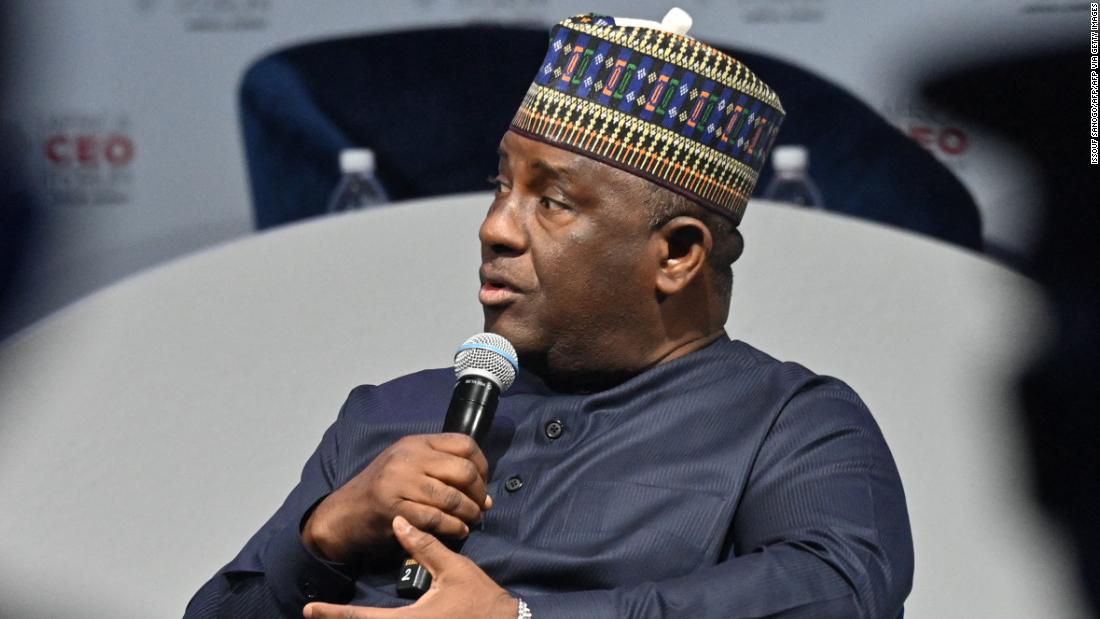Africa must cut reliance on food imports, says Nigerian billionaire
Rabiu is the CEO of BUA Group, a conglomerate in food processing, infrastructure, manufacturing and mining. His company has made investments across the continent to cut its reliance on imports from Europe and Asia.
He spoke with CNN’s Eleni Giokos last month at the Africa CEO Forum in Abidjan, Ivory Coast.
High inflation, food insecurity, energy prices: What are you going to do to solve some of these issues?
So how is your input being affected?
Rabiu: If you import and the price is double, what do you do? You have to increase the prices. And a lot of people cannot really afford that. So we are seeing a decrease in terms of production, processing and consumption, and that is a big issue. That is why I keep saying that we have to look inwards, do as much as we can to add value to what we have. We have to increase (our) production for the food security of the continent.
You have been in the pasta business, for example. Why haven’t you already gotten into farming? I know wheat is difficult to grow.
Rabiu: The free trade area is an amazing arrangement. We all need to come together to enjoy the benefits. Of course, we also have challenges as far as infrastructure is concerned, and for the agreement to succeed, you need to fix your infrastructure space, especially in areas like ports.
You still find that challenging?
Rabiu: I give you an example: it’s more expensive to ship goods from Nigeria to, say, Lomè (in Togo, West Africa) than from Nigeria to Brazil. And that’s because we have the vessels without the ports. So those issues are there and we need to fix our infrastructure.
For all the latest world News Click Here

